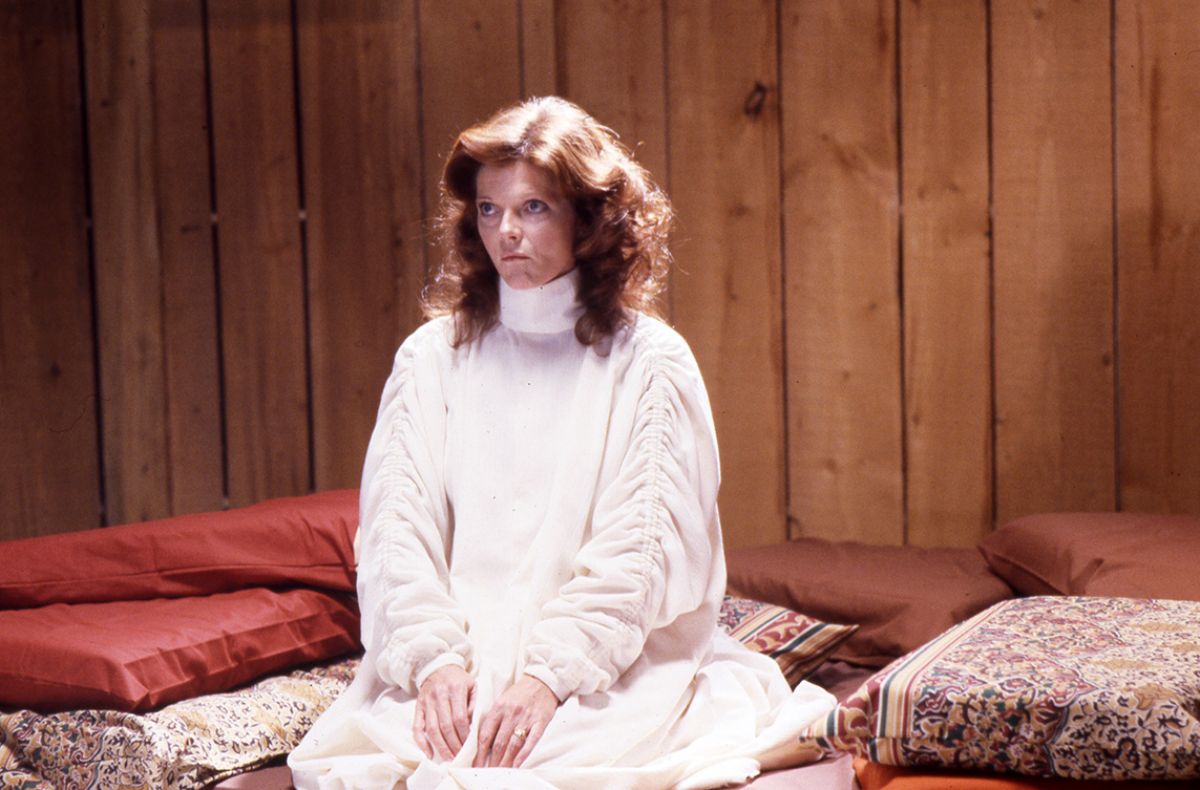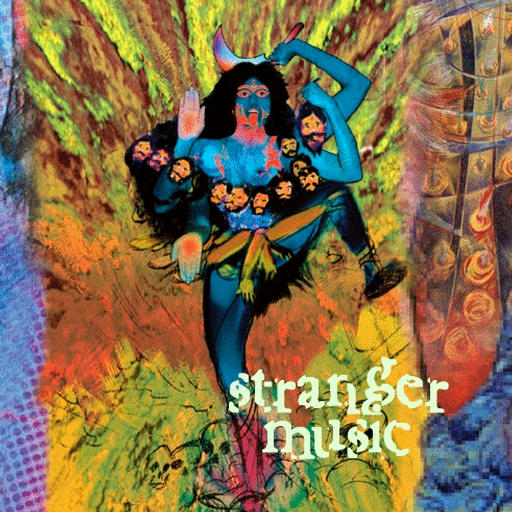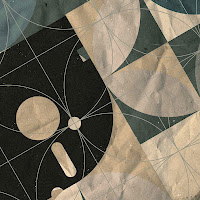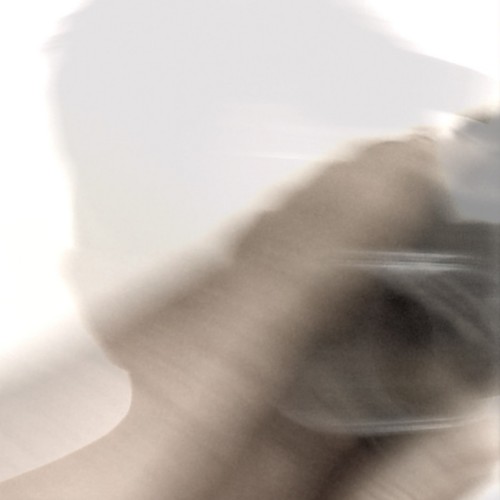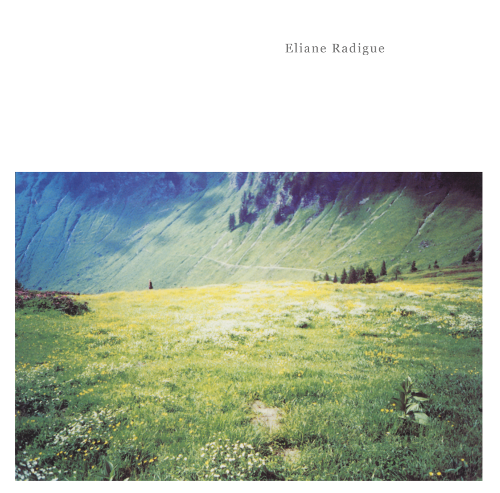WARNING — contains spoilers for Scanners, The Brood and also (oddly enough) Nightbreed.
My first introduction to the work of David Cronenberg may not have been ideal, but it was probably fitting. It was through that classic promo shot of a dude with his head exploding from Scanners, in the pages of a much-thumbed copy of (I think) Starlog which got breathlessly passed round my classroom at school before eventually being confiscated by the teacher. This had more to do with the back-page pin-up of Sybil Danning as Battle Beyond The Stars’ St Exmin that adorned the back cover, leading said teacher to mistake the magazine for pornography.
I say “fitting”, because that tension between sex and death has been one of the themes that has dominated Cronenberg’s half a century of cinema, going all the way back to the sexually-transmitted murder-zombie-creating slugs from Shivers or Rabid’s infamous underarm vampire penis. Scanners, on the other hand, is a relatively sexless affair, focusing on another Cronenberg obsession — the link between the mind and the body. The scene which comes to most people’s minds when they hear the name Scanners is, of course, that same exploding head that I was fascinated by in that forbidden SF magazine as a child.
Scanners, on the other hand, is a relatively sexless affair, focusing on another Cronenberg obsession — the link between the mind and the body. The scene which comes to most people’s minds when they hear the name Scanners is, of course, that same exploding head that I was fascinated by in that forbidden SF magazine as a child.
But this occurs very early on in the film and lasts for a few seconds. Still, in the popular misconception, Scanners is “that film about the bloke that can make people’s heads explode”. “The bloke”, of course, being Michael Ironside’s Daryl Revok, who wants to bring about a new fascist society using the power of scanners (people who can read minds. And, OK, OCCASIONALLY make people’s heads explode).
Stephen Lack is scanner Cameron Vale, who is drawn into a power struggle between Revok and Dr Paul Ruth, played with panache by McGoohan. At the time, The Prisoner was well on its way to cult status, making McGoohan synonymous with conspiracy and paranoia, and therefore a perfect fit for Cronenberg’s parable of psychic powers and secret projects.And with these three poles in play, the scene is set for what is, at its heart, an exciting SF thriller with a climax that prefigured Cronenberg disciple David Cronenberg’s Tetsuo. Well, depending how you read it, of course; Cronenberg’s never been one for a neat conclusion that doesn’t leave you with questions. (Ironside is brilliant, obviously. I always wanted to do a film along the lines of The Expendables but called The Affordables, with all cinema’s Reasonably-Priced Badasses — Michael Ironside, Lance Henriksen, Rutger Hauer, Bruce Campbell, etc. Sadly now that Hauer is no longer with us, my already-extremely-unlikely-to-be-realised dream is now never to be realised).
Two years before Scanners, Cronenberg had given us The Brood, an even more literal exploration of similar themes, as Dr Raglan’s experimental psychomorphism therapy gives rise to murder and mutation. Oliver Reed is perfectly cast as Dr Raglan, most of whose scenes are deliberately over-dramatised roleplay sessions with Samantha Eggar’s Nola, giving him plenty of rein to unleash his formidable talents on the screen. Psychomorphism brings out trauma, forcing it to manifest physically — one man comes out in hives, another (Robert Silverman, who also appears in Scanners and is excellent value in both) develops a bizarre-looking tumour; and Nola, who gives birth to the titular Brood, a clutch of mutant feral children who embody her rage and resentment against her parents, her child and the woman she wrongly suspects of having an affair with her husband Frank (Art Hindle). This being Canada, the children are all wrapped up warm against the cold, giving some of the creepiest scenes an unintended (or possibly prophetic) additional layer of association, as Nola and Frank’s daughter Candice is abducted by the Brood in a shot reminiscent of an evil South Park. You can also see the roots of Dr Decker, the psychiatrist Cronenberg himself plays in Nightbreed, Clive Barker’s adaptation of his own novel Cabal — although the key difference is that while Decker is unrepentantly evil, moonlighting as a literal serial killer, Raglan is more of a Frankenstein figure, realising too late that he has created a monster. Well, several monsters, but that’s inflation for you, I guess. Like Scanners, The Brood is oddly sexless for Cronenberg — the Brood themselves are delivered (somewhat graphically, of course) via virgin birth, and while relationships are a key theme here, they are familial rather than sexual — parenthood is the key, rather than the acts that lead to it. The only sexual relationship that drives the plot is an entirely imagined one, and most of Nola’s resentments are aimed at her parents and her child, rather than her husband.
Like Scanners, The Brood is oddly sexless for Cronenberg — the Brood themselves are delivered (somewhat graphically, of course) via virgin birth, and while relationships are a key theme here, they are familial rather than sexual — parenthood is the key, rather than the acts that lead to it. The only sexual relationship that drives the plot is an entirely imagined one, and most of Nola’s resentments are aimed at her parents and her child, rather than her husband.
Watching both The Brood and Scanners again in 2025 is a fascinating experience — not only are they both cracking films in their own right, it’s interesting to see the roots of Cronenberg’s later career, with themes and obsessions he would go on to develop in myriad directions even in his more “serious” work.
With this in mind, 2022’s Crimes Of The Future seems almost inevitable. It’s not just a return to the body horror of his earlier work, it’s Young Cronenberg back at the helm armed with Old Cronenberg’s wisdom, experience and contacts list. Now both The Brood and Scanners have been given the Second Sight treatment, arriving in 4K Blu-ray format, each with a corresponding box set featuring books of new essays and new artwork. Both also include a spectacular amount of interviews with cast and crew, including Howard Shore (on both movies), the composer whose career makes me happy in the same way as those of Cronenberg, Sam Raimi and Peter Jackson do — guys who started out doing weird little horror movies and are now titans of Hollywood (most famous these days for his sweeping scores to Jackson’s Lord Of The Rings trilogy, without which the ten-hour YouTube clip of “They’re Taking The Hobbits To Isengard” would be lacking a melody).Overall, these are great — the prints are sharp (certainly better than my old VHS, even after I had it replaced) and the sound is crisp. They would make a brilliant addition to your library. Or a brilliant replacement for the old copies you already own. At this point I’d say they’re the definitive editions of both films. I can’t recommend them highly enough.
-Justin Farrington-

